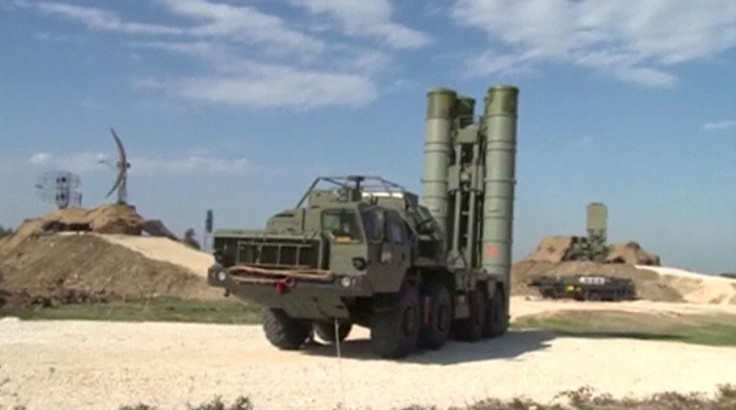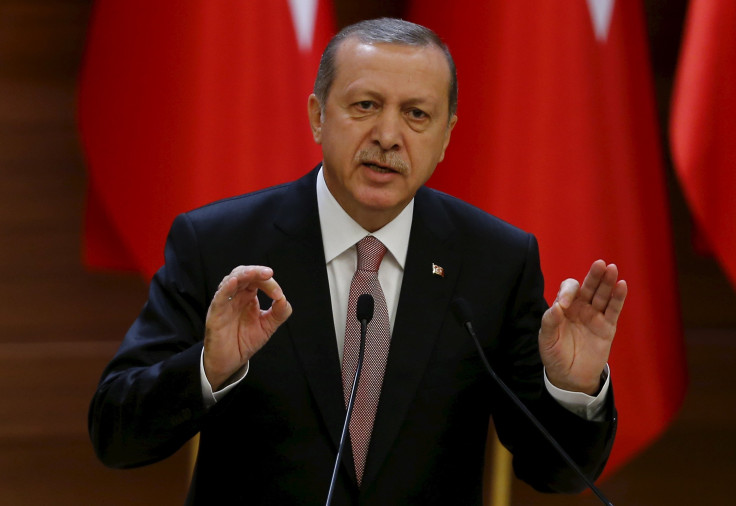Russian SU-24 Fighter Jet Attack: Moscow Fortifies Anti-Aircraft Defenses In Syria, Deploys S-400 Missiles

Startled by the downing of its SU-24 fighter jet by Turkish air force near the Syrian coastal province of Latakia Tuesday, Russia has beefed up its anti-aircraft defenses in Syria by deploying the Moskva missile cruiser toward the coast, media reports said Friday. Moskva’s long-range air defense system is expected to provide cover for Russian aircraft operating in the region.
Friday’s reports came after Russia’s S-400 missiles -- with killing range reaching over 248 miles -- entered duty at the Hemeimeem air base, located just 31 miles from the border with Turkey, Thursday. Russia has been using the base to attack opponents of Syrian President Bashar Assad since late September. While the U.S. said that the deployment of the S-400 missiles could further complicate the tense situation in Syria, Moscow responded saying the enhanced defenses are aimed at protecting Russian aircraft, and they will not contradict work with the coalition led by Washington.
“Air defense systems are in no way aimed against our partners, jointly with whom we are fighting terrorists in Syria. It does not in any way contradict what we do with the coalition led by the United States,” Russia’s Tass news agency quoted President Vladimir Putin as saying, adding that Moscow will also use other means such as fighter escort and electronic warfare to defend its planes in Syria.
Although both Turkey and Russia say they are fighting the Islamic State group, also known as ISIS, in the region, the nations are at odds over the Assad regime. Turkey, which is a member of NATO and of the U.S.-led coalition in the region, insists that Assad must quit before the Syrian conflict is resolved through political means.
Following the downing of the Russian SU-24 jet, Russia-Turkey relations deteriorated even further. While Moscow has suspended its visa-free arrangement with Turkey and is planning to introduce various economic sanctions in retaliation, Turkish President Recep Tayyip Erdoğan responded saying that the Kremlin was “playing with fire.”

“It is playing with fire to go as far as mistreating our citizens who have gone to Russia,” the Guardian quoted Erdoğan as saying to supporters during a speech in Bayburt, in northeast Turkey, Friday. “We really attach a lot of importance to our relations with Russia … We don’t want these relations to suffer harm in any way.”
Erdoğan also accused Russia of aiding Assad’s “terrorist state” in Syria, while Putin recently alleged that Turkey has been buying oil smuggled from ISIS. According to Erdoğan, Russia is trying to use the downing of the jet as an “excuse to make unacceptable accusations against us.”
Although the Turkish president did not apologize for attacking the Russian jet, he said Thursday that had Turkey known the aircraft was Russian, “maybe we would have warned it differently” to change course. Putin, however, rejected Turkey's claims that the plane had infiltrated Turkish air space and that it did not recognize the jet as Russian, BBC reported.
© Copyright IBTimes 2024. All rights reserved.












